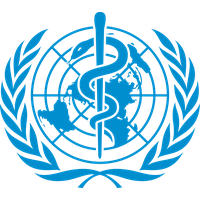
World Health Day
Taking place on 7th April every year.
Raising awareness of global health issues and their solutions.
About the event
World Health Day was envisaged at the first World Health Assembly in 1948 and first celebrated on April 7th 1950. The day is intended to mark the foundation of the World Health Organisation and to promote the ideals of global cooperation on health issues. Every year the WHO focuses on a different health theme to highlight particular issues. Past themes have included the health effects of climate change, universal health coverage, and support for nurses.
How to approach it
Ensure students have an informed understanding of what health is, what health problems can arise and how we can go about solving them. Ask students: what does being healthy mean to them? What about being unhealthy? How do we keep ourselves healthy? Next, introduce the idea of societal and structural health issues. There are things like air pollution, smoking, high sugar intakes or pandemics that cause health issues of a scale that require coordinated responses of national or international institutions. Here bring in the WHO, give examples of how the international community has cooperated to solve health crises. The AIDs epidemic, COVID or Ebola are all good examples. This is a great opportunity to highlight how important international cooperation is.
Next, allow students to think critically about health. Societal health issues are interlinked with political and economic issues. You could discuss the underfunding of the NHS or the lack of COVID vaccines for the global south. Likewise, encourage thinking about the ways in which modern life may be contributing to health problems. Low nutrient foods and high pollution levels are some good examples of factors leading to poor health. Ask your students: how can we have healthier people and a healthier planet? How healthily are we living now? What can we do better?
Conversation starter
Everyone deserves the resources to be able to look after their health. To stop COVID-19 spreading we must offer everyone vaccines, not just those in wealthy countries. Can you think of other ways that our health is connected globally?







